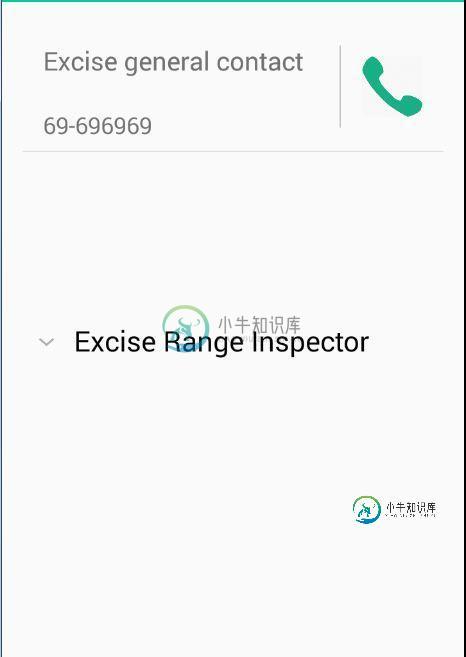线性布局-定位视图
我有这个布局。
<RelativeLayout
xmlns:app="http://schemas.android.com/apk/res-auto"
xmlns:android="http://schemas.android.com/apk/res/android"
xmlns:tools="http://schemas.android.com/tools"
xmlns:ads="http://schemas.android.com/apk/res-auto"
android:layout_width="match_parent"
android:layout_height="match_parent"
android:paddingLeft="@dimen/activity_horizontal_margin"
android:paddingRight="@dimen/activity_horizontal_margin"
>
<LinearLayout
android:layout_width="match_parent"
android:layout_height="match_parent"
android:id="@+id/numbers_root"
android:orientation="vertical"
android:gravity="top"
>
<ListView
android:layout_width="match_parent"
android:layout_height="wrap_content"
android:id="@+id/numbersList"
android:paddingTop="@dimen/activity_vertical_margin"
android:paddingBottom="116dp"
android:clipToPadding="false"
tools:layout_height="100dp"
></ListView>
<ExpandableListView
android:layout_width="match_parent"
android:layout_height="wrap_content"
android:id="@+id/subcategory_expandable"
>
</ExpandableListView>
</LinearLayout>
</RelativeLayout>
但问题是,ExpandableListView总是以屏幕为中心,尽管父布局中有重力。我想要的是让它从ListView结束的地方开始。知道是什么原因吗?我应该使用滚动视图而不是线性布局吗?

我希望可扩展的listview出现在listview下方。
共有1个答案
我认为问题是您在ListView上的paddingBottom="116dp"正在向下推送ExportandableListView。
-
是否有任何方法可以使用android: fillViewport="true"和一个子LinearLayout填充所有视图,当LinearLayout的内容不够高时? 到目前为止,在ScrollView中的LinearLayout中,我们必须使用Android:layout _ height = " wrap _ content "。我们可以添加一些东西来填充所有的滚动视图吗?
-
主要内容:本节引言,1.本节学习图,2.weight(权重)属性详解:,3.为LinearLayout设置分割线,4.LinearLayout的简单例子:,5.注意事项:本节引言 本节开始讲Android中的布局,Android中有六大布局,分别是: LinearLayout(线性布局),RelativeLayout(相对布局),TableLayout(表格布局) FrameLayout(帧布局),AbsoluteLayout(绝对布局),GridLayout(网格布局) 而今天我们要讲解的就是
-
本文向大家介绍Android LinearLayout 线性布局,包括了Android LinearLayout 线性布局的使用技巧和注意事项,需要的朋友参考一下 示例 LinearLayout是一种ViewGroup将其子级排列在单列或单行中的。可以通过调用方法setOrientation()或使用xml属性来设置方向android:orientation。 垂直方向:android:orien
-
在上一节中,我们讲到了所有的 Layout 都是从 ViewGroup 继承而来,它可以包含若干 View 并按照指定的规则将这个 View 摆放到屏幕上。那么接下来的章节我们就来学习一下 Android 的 UI 布局,Android 原生有六大布局,分别是: LinearLayout(线性布局)、RelativeLayout(相对布局)、TableLayout(表格布局)、FrameLayou
-
我正在开发一个应用程序,在一个xml文件中有两个线性布局。开始时,一个线性布局设置为不可见。当用户按下按钮时,可见的线性布局应向下滑动90%,并显示第二个线性布局。我编写了动画文件,并使其运行良好。我的问题是,在动画之后,视图会回到原来的状态。如何向下移动第一个线性布局以显示第二个线性布局?有什么帮助吗? 主活动文件: } XML文件:
-
问题内容: 最近我正在构建一个应用程序,现在我在布局和位置上遇到了一些问题。实际上,我建立了布局,但是当我在更大的屏幕上进行测试时,所有内容都崩溃了,我的应用程序外观也不佳。制作UI的最佳方法是什么? 问题答案: 请参阅支持多个屏幕。 另外,在创建UI时,请尝试保持布局不变,并避免对其进行硬编码,以使UI可以适合所有屏幕。编码愉快。

